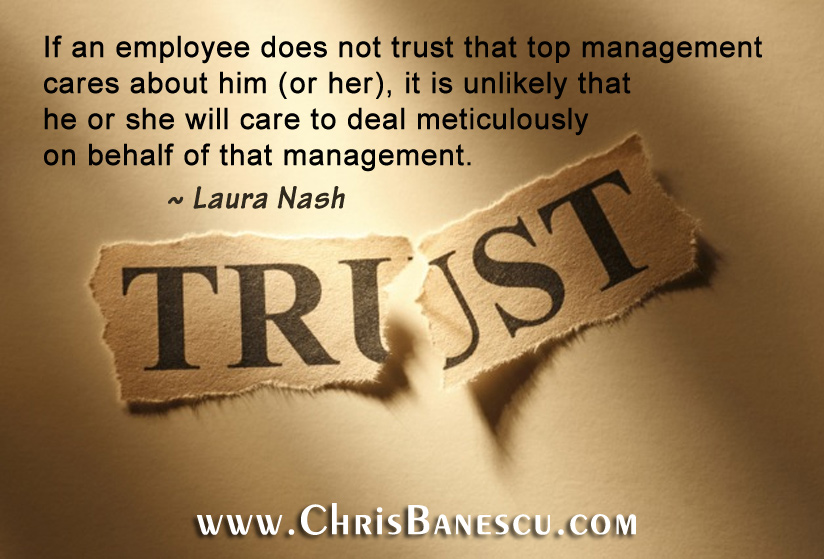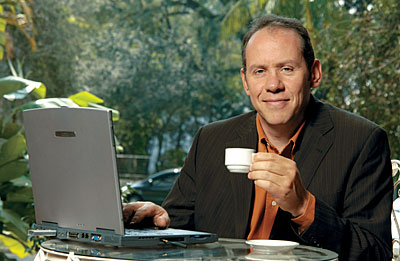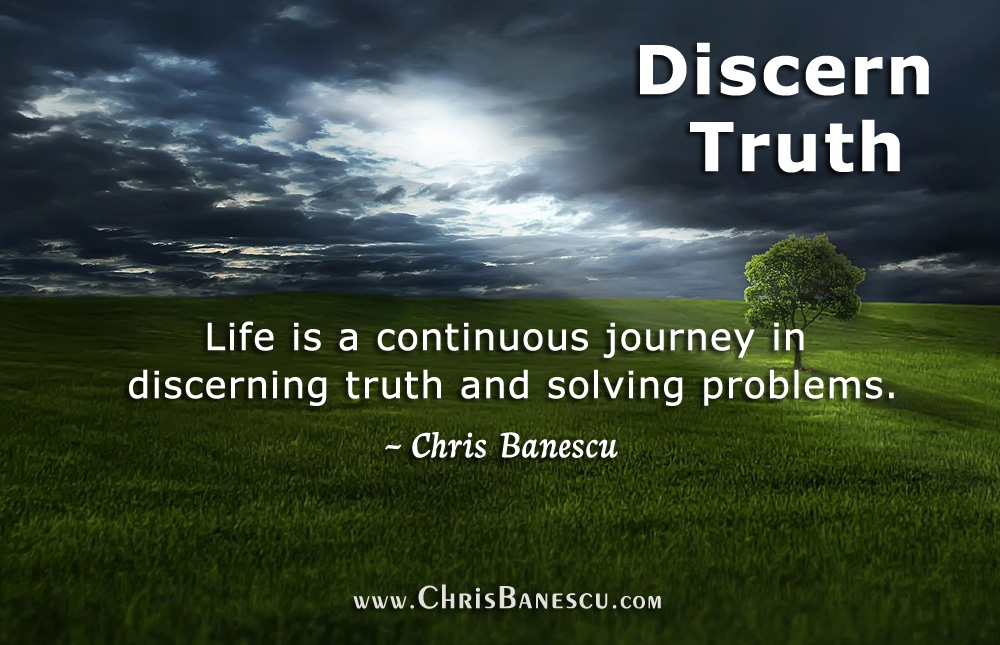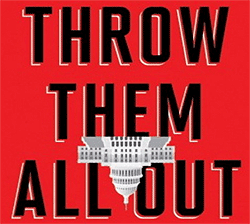 “If an employee does not trust that top management cares about him (or her), it is unlikely that he or she will care to deal meticulously on behalf of that management.” ~ Laura Nash
“If an employee does not trust that top management cares about him (or her), it is unlikely that he or she will care to deal meticulously on behalf of that management.” ~ Laura Nash
Ethics
How to Reduce Organizational Bureaucratization and Keep Executive Egos in Check
 by Chris Banescu –
by Chris Banescu –
In his groundbreaking book, Up the Organization: How to Stop the Corporation from Stifling People and Strangling Profits, Robert Townsend, unconventional business executive and former CEO of Avis Rent-a-Car, provides us with witty and practical advice on how to tackle misguided organizational processes and attitudes that stifle people and undermine profitability.
Townsend despised the constant organizational push by management towards additional bureaucratic processes and cumbersome institutional procedures that increased in size and complexity as a company grew. He also offered smart suggestions on how to keep the executives’ egos in check.
His first proposal on dealing with the bureaucratic danger is to make the CEO the initial guinea pig for institutional experimentation. Before anyone else in the company is forced to follow any new process or procedure, or fill out a new form or questionnaire, the chief executive must complete it in full first. Townsend surmised this approach alone would “kill a lot of bad ideas early.” [Read more…]
Rewards and Recognition Programs – Guiding Principles and Key Characteristics
 by Chris Banescu –
by Chris Banescu –
There are four guiding principles that leaders must consider when leading their employees. All rewards and recognition programs should be: personalized, noteworthy, meaningful, and motivating. This raises the bar on organizational performance, helps motivate employees, promotes and strengthens employee engagement, and nurtures healthy and constructive competition based on value-creation and operational excellence.
“The right total rewards system – a blend of monetary and nonmonetary rewards offered to employees – can generate valuable business results.” – Robert L. Heneman, Ph.D.
“[Think about] actions that are meaningful to [the employee] versus what’s meaningful to the giver.” … “We tend to give appreciation in ways that are meaningful to us, but if [the recipients] think it’s not authentic, it can create damage and make them think you’re trying to manipulate them.” – Paul E. White, Ph.D. [Read more…]
Ricardo Semler: Set Employees Free for Long-Term Growth and Success
 by Brad Wieners –
by Brad Wieners –
For nearly 25 years, Ricardo Semler, CEO of Brazil-based Semco, has let his employees set their own hours, wages, even choose their own IT. The result: increased productivity, long-term loyalty and phenomenal growth.
Ricardo Semler had the sort of reckoning at 21 that most executives don’t face until middle age. Fresh from law school, where he’d been a restless underachiever, Semler took over his father’s business, which manufactured pumps and propellers for the world’s merchant marine. He was awfully young, but his dad sensed that if he didn’t give his son a chance, he’d lose him to another career. Besides, Semler Sr. was a pragmatist. “Better make your mistakes,” he told his son, “while I’m still alive.”
Straightaway, Semler Jr. spearheaded an ambitious plan to diversify his dad’s ship-parts company, which, like the Brazilian economy in the mid-eighties, was sinking. At Semco headquarters, in São Paulo, he tried to learn everything there was to know, and, while a quick study, he irritated plenty of the old hands with his precociousness and micromanaging. Working from 7:30 a.m. to midnight every day, or jumping planes overseas to raise capital and find new partners and companies to buy, his live-to-work lifestyle seemed ripped from the pages of John Grisham’s The Firm. [Read more…]
The Compass vs. The Clock, Put First Things First
 by Chris Banescu –
by Chris Banescu –
The realization that something is not right with our lives can manifest itself in various ways. A feeling of emptiness, a bothersome disquiet, or a strange pain, like a deep sadness or a heartache, gradually or suddenly begins to trouble our souls. We feel guilty, anxious, unsatisfied, stressed, or sad even in moments when we ought to be at peace and carefree; when we should be relaxing or enjoying ourselves. For some this pain is only a vague discomfort. For others, including yours truly, the pain can often be intense and unrelenting; sometimes lasting for long stretches of time.
I discovered the reason for this mysterious affliction in the book First Things First, written by Stephen Covey, Roger Merrill, and Rebecca Merrill. They describe this particular grief as the “pain of the gap,” the gap we sense between the compass and the clock in our lives. Every time we don’t put first things first, when we fail to follow our calling and vocation and focus on the most important things in life, our conscience warns us that something’s not right and corrective measures and proactive actions are required. [Read more…]
Discern Truth and Solve Problems

Life is a continuous journey in discerning truth and solving problems. Courage gives us the determination to accept truth. Discipline allows us to consistently and creatively deal with the problems.
Mistakes don’t become failures until we refuse to correct them. Often, long-term failures develop when we purposely ignore truth and make excuses instead of taking the necessary steps to correct our mistakes.
(Photo credit Pixabay)
Throw ‘Em All Out…And Good Riddance!
 by J.R. Dunn –
by J.R. Dunn –
Crony capitalism is the most serious current danger to the American community, a threat not simply to government or the economy, but to our very way of life. It is the worst such threat since the trusts and monopolies of the early 20th century, and in much the same way. Cronyism is one of the major forces behind the establishment of the corrupt pseudo-aristocracy that has been taking shape in this country over the past two decades, a synthetic privileged class made up in large part of politicians, hustlers, and hangers-on who have become expert in exploiting the rest of us.
The legacy media, for some obscure reason, tends to bury discussions about this group. While the reportage on discrete incidents is there — see the parade of stories on Solyndra, Goldman Sachs, and MF Global for examples — we find little effort to pull it all together. Academics, with the single exception of Angelo Codevilla, who sounded the alarm two years ago in The Ruling Class, appear oblivious, as if they had no idea what’s going on, which may well be the case. [Read more…]
